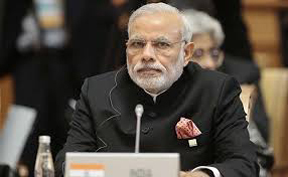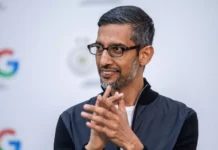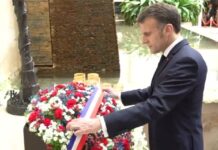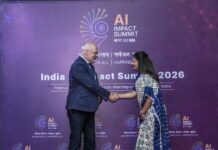 NEW DELHI: Prime Minister Narendra Modi’s “personal chemistry” has emerged as a “powerful tool” in enhancing India’s diplomatic engagement and a “different approach” was very much evident in dealing with international events and situations in the last one year, Foreign Secretary S Jaishankar said today.
NEW DELHI: Prime Minister Narendra Modi’s “personal chemistry” has emerged as a “powerful tool” in enhancing India’s diplomatic engagement and a “different approach” was very much evident in dealing with international events and situations in the last one year, Foreign Secretary S Jaishankar said today.
Talking about a “sense of change” the way India handles its international relations, he referred to proactive approach in dealing with the neighborhood, China and countries of the Pacific Island as well as African nations.
“Let me mention examples that convey the sense of change.
A neighborhood policy that puts a premium on connectivity, contacts and cooperation. A China policy that triangulates security interest economic cooperation and international politics.
“The land boundary agreement with Bangladesh and the connectivity understandings have been game changers.
Cooperation in power generation and post earthquake assistance in Nepal have transformed that relationship,” the Foreign Secretary said.
He was speaking at the launch of a book titled ‘Modi’s World, Expanding India’s Sphere of Influence’, authored by noted scholar C Raja Mohan.
Harping on the personal rapport of the Prime Minister, Jaishankar said, “A personal chemistry (of Modi) has emerged a powerful tool in our diplomacy.”
He said a “coherent” Indian Ocean strategy was under implementation and that “visits to even nearby nations after decades and impending summits of the Pacific governments and African states represent the different mindset.
He also referred to removal of the bottlenecks in implementation of the Indo-US nuclear deal.
“The nuclear initiative is a matter close to my heart. It has moved back into the active terrain. We have seen a forward movement with the US France and Russia and work in progress with Australia and Japan,” he said.
Highlighting Modi’s achievements on foreign policy front, the Foreign Secretary talked about the prime minister’s visit to the US, China, Japan and a range of other issues including India’s assistance to earthquake-hit Nepal and removing bottlenecks in implementation of the Indo-US nuclear deal.
“Think of the Madison Square and the presence of 30 members of the US Congress. Recall the meeting of President Xi Jinping in Xian. Remember Barack Obama’s visit here on Jan 26 and (Modi’s) bonding with Shinzo Abe in Kyoto.
“Look at Operation Rahat in Yemen or Operation Maitri in Nepal. Consider the integrated tours of Central Asia, East Asia and the Indian Ocean. So let me ask you. Does this look like diplomacy as usual?” he asked.
Stating that India has had an impressive record in peacekeeping and disaster relief missions, Jaishankar strongly endorsed a permanent seat for India in the United Nations’ Security Council (UNSC).
“Development narratives is a part of the transition towards a meeting point. Now look at our impressive disaster efforts, including Nepal and Yemen. See, the story of India that has always done its most for the world strengthens our position as a responsible stakeholder and boosts our credentials for the permanent seat in the UNSC,” he said.
He said the use of the Indian Diasporas too has been a part of the diplomacy.
“Their (people of Indian origin) achievements have been largely appreciated. Till now we have not fully used them as bridges to different societies,” the Foreign Secretary said, adding that these are new “lexicons” of assimilating and implementing changes.
“The term ‘neighborhood first’ has a clear explanatory message. The term Look East to Act East is not without meaning. The introduction of heritage and lifestyle into conversations on climate change is worth considering,” Jaishankar said.
He added that use of social media and instances like yoga as soft power add a new dimension to diplomacy. .
“Our flagship program of attracting favorable international response gives impression that ‘India is somewhat easy for business’ has started to make an impact as well. Some of these are new developments. Others are decisive conclusion of our unfinished national agenda. Either way they signal different times,” he said.
Mentioning India’s growing stature in the world, the Foreign Secretary suggested that India should not be a mere balancing power but should take lead to become an aspiring leading power in the world.
“They (the new initiatives of the government) speak of greater confidence, more initiative, determination and obviously the capacity of our growth that have been built up over the time. In many ways, they constitute the larger footprint and more intensive one.
“Is it therefore time to ask whether India should raise the level of ambitions? Should we remain a balancing power or aspire to be leading one? Diplomacy involves management of contradictions in international politics, and the pursuit of sometimes contradictory goals.
“With India’s current position, it is possible to make a case that simultaneous pursuits of multiple relationships create a virtual circle and each one drives the other harder.
So is it done for greater activism? Confidence leads to initiatives and drives strategy,” he said.–PTI






